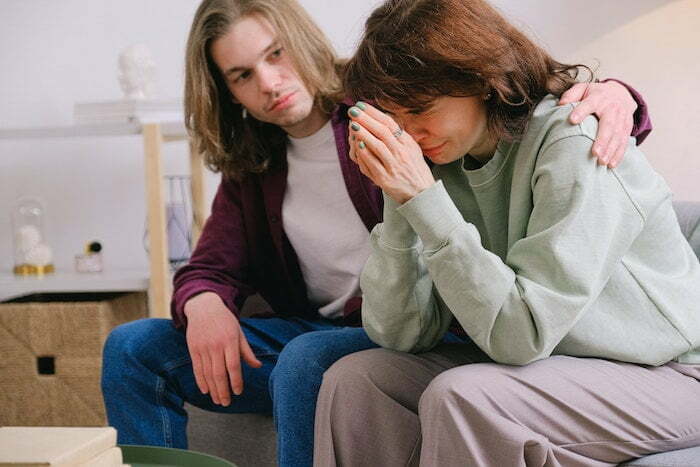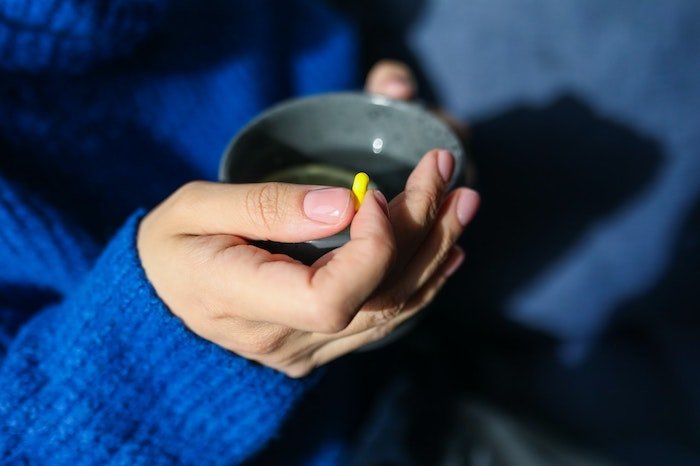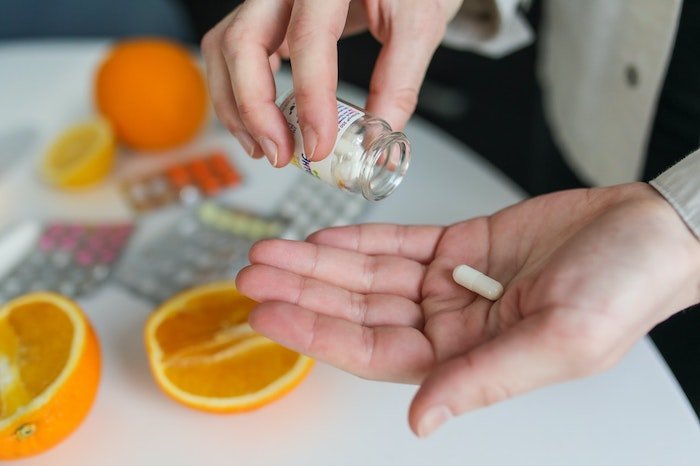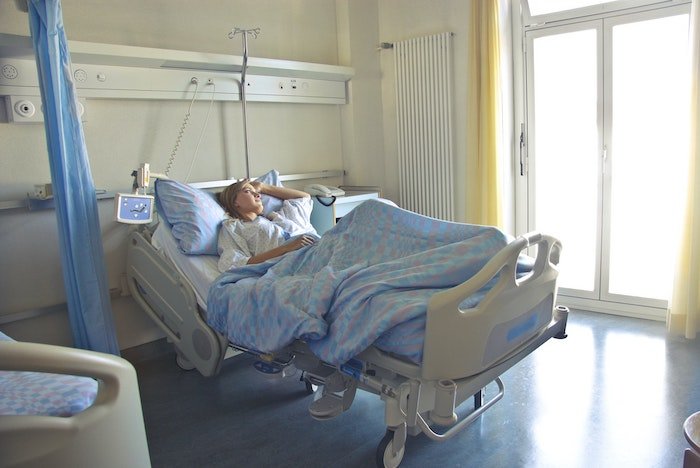Almost 800 people had to be hospitalised in Windsor in 2018–19 as a direct result of alcohol, and in that same year, 242 adults who were responsible for children were living with an alcohol dependency.
Additionally, local police are still cracking down on known drug dealers and taking drugs off the streets.
Drugs and alcohol are clearly a problem in Windsor, and there is a clear need for drug and alcohol rehab in Windsor and its surrounding areas.
If you are addicted to drugs or alcohol, it’s important that you seek treatment that can help you overcome it.
An addiction to these substances can feel impossible to put behind you. However, OK Rehab can find a drug and alcohol rehab in Windsor that can help you take a step towards a happy, healthy and fulfilling life.
Please call our 24-hour helplineon 0800 326 5559
Are You Addicted To Drugs And Alcohol?

Knowing when you need help is an important part of asking for it. Addictions don’t just suddenly happen – they build gradually.
People often ignore the signs that they are becoming addicted to drugs or alcohol, and therefore their addiction only grows.
If you ignore your addiction, you are only letting these substances do further harm. The longer you struggle with an addiction, the worse you will feel.
That’s why you must seek treatment when you see the signs of addiction in your behaviour and daily lifestyle.
The most common signs of an addiction include:
- Mood swings
- Increased temper
- Irritability or agitation
- Disrupted sleeping patterns, including insomnia
- Tiredness
- Paranoia
- Defensiveness
- You find it hard to relax until you have had the first drink or drug of the day
- You struggle to focus or concentrate
- Low self-esteem
- Hopelessness
- Poor attendance and/ or performance at work
If you have recognised any of these signs in yourself lately, then you are likely addicted to drugs or alcohol. Seeking treatment at drug and alcohol rehab in Windsor gives you the best chance at freeing yourself from your addiction.
To learn more, please call our 24-hour helpline on0800 326 5559
Why Should You Think About Going To Drug And Alcohol Rehab In Windsor?

Your addiction is seriously harming your physical and mental health, which can damage the overall quality of your life.
Your Addiction vs Your Physical Health
Long-term heavy drinking and drug abuse can have serious, even life-threatening consequences for your health.
In England, 358,000 people were in hospital due to alcohol consumption, while drug poisoning resulted in 18,053 hospital admissions in the same year.
Alcohol and drugs have been connected to several health conditions, including:
- Weight gain
- High blood pressure
- Strokes
- Heart attacks
- Cirrhosis of the liver
- Lung disease
- Lung cancer
- Stomach cancer
- Mouth cancer
- Breast cancer
Injecting drugs into your system can increase your risk of getting infections and lead to skin breakdown around the injection site.
By going to drug and alcohol rehab in Windsor, you won’t be able to reverse any damage that’s been done to your physical health.
However, you will halt further harm and give yourself a chance to recover. This can help you look toward a healthier, happier future.
To learn more about how addiction affects your body, call our team on 0800 326 5559
Your Addiction vs Your Mental Health

It’s not just your physical health that’s being damaged by your addiction, but your mental health too. This is just as important and affects the quality of your life.
Alcohol and drugs can cause stress, anxiety and depression. However, people often begin drinking or taking drugs to try to manage these mental disorders.
The problem with this is that drugs and alcohol can actually make your stress, anxiety or depression worse.
If this is the case with you, then you have become trapped in a vicious cycle of your poor mental health and substance abuse fuelling each other.
It may feel like an impossible situation to escape, but you can find healthy, positive ways of managing your mental health without these substances. Therefore, you can cope with your stress, anxiety, or depression without the use of drugs or alcohol.
It’s also possible for your relationships to have been harmed due to your addiction. This can have negative effects on your mental health.
With your addiction, you may have become secretive or dishonest with your friends and family. Perhaps you’ve also found yourself withdrawing from socialising with them and instead staying indoors.
This can put a strain on your relationships with your friends and family. When these relationships are broken like this, it can lead to feelings of hopelessness and loneliness.
These are incredibly dangerous to your mental health, as they can increase the risk of suicidal thoughts.
Treatment at drug and alcohol rehab in Windsor will introduce you to positive coping mechanisms and thinking processes so that you can move forward with a healthier mindset.
To find out more about the impact of addiction on your mental health, please call our 24-hour helplineon 0800 326 5559
How Much Does It Cost To Attend Drug And Alcohol Rehab In Windsor?

The cost of attending drug and alcohol rehab in Windsor will vary depending on several factors, including:
- The facility you choose to attend – some clinics offer luxurious and high-end services such as massages and gourmet food, while others are more basic.
- The type of accommodation you choose – you can usually choose between a shared room or a private room.
- Whether you require a medically assisted detox – this needs to be completed before any therapy treatments can begin so it often means that your stay will be longer, and you will have to cover the cost of the extra medication.
- The severity of your addiction – more severe addictions will require longer stays to fully recover.
The best way to get a better idea of how much your stay in drug and alcohol rehab in Windsor will cost, you should contact a few facilities that you like and have an open and honest conversation with the staff about your addiction.
Typically, drug and alcohol rehab in Windsor can cost anywhere between £1,000 and £10,000 per week, with an average of around £500 per day.
While those figures may be daunting, it is important to try not to dwell on them. You cannot put a price on lifelong good physical and mental health, and you would easily spend more than that amount feeding your addiction.
It is worth checking any health insurance policies you may have to help you cover some of the costs.
Most clinics offering drug and alcohol rehab in Windsor accept health insurance as part of the payment. If you have an insurance policy, it is worth checking your documentation to see if you have coverage for mental health or addiction services.
For more information on the cost of drug and alcohol rehab in Windsor, contact one of our addiction specialists today at 0800 326 5559.
What Can You Expect From Drug And Alcohol Rehab In Windsor?

When you get in touch with OK Rehab, we’ll help you begin your search for treatment at a drug and alcohol rehab in Windsor. This will either be at a local NHS hospital or at a private clinic.
Your treatment will be divided into three steps: detox, rehabilitation and aftercare.
1. Detox

Your treatment will begin with a detoxification programme of ten days. This will be when you stop taking drugs or alcohol.
Detox can be a challenging step, as your body will go through cravings as it re-learns how to function without drugs or alcohol.
However, it’s an essential stage of your recovery as it allows you to continue with the rest of your treatment.
Cleaning these substances from your system can lead to withdrawal symptoms, which will range from mild to severe. This will depend on your addiction, and you won’t be able to predict which symptoms you experience or how painful they’ll be.
Withdrawal symptoms can include:
- Mood swings
- Changes in appetite
- Congestion
- Fatigue
- Irritability
- Muscle pain
- Restlessness
- Shakiness
- Runny nose
- Nausea
- Sweating
- Tremors
- Vomiting
- Seizures
- Hallucinations
- Delirium
You’ll be assisted by a medical professional throughout your detox programme. They will monitor your progress and keep an eye on your pain levels.
They will also be able to prescribe appropriate pain relief if necessary, and they’ll make sure your detox is as safe and painless as possible.
2. Rehabilitation

Once your head and body have been cleared of drugs and alcohol, you will continue your treatment at drug and alcohol rehab in Windsor with rehabilitation. This stage focuses on your mental health and the mental aspects of your addiction.
At OK Rehab, we believe that rehab shouldn’t just be putting you in a room to talk with a therapist for an hour.
Instead, we want to give you access to treatment that will have long-term benefits and give you tools you can use to live a happy, fulfilling life without drugs or alcohol.
That’s why you’ll be treated with different types of therapeutic treatment tailored to the individual needs of your therapist. These therapies will work on your thinking and behaviour and help you understand that how you think and act affects your lifestyle.
You’ll examine the root cause of your addiction, as well as learn positive thought processes. This can help you develop healthy habits that will help you maintain long-term sobriety.
The most common therapies used when helping people overcome their addiction include:
- Individual Therapy
- Group Therapy
- Family Therapy
- Holistic Therapies
- Cognitive Behavioural Therapy (CBT)
- Acceptance and Commitment Therapy (ACT)
- Dialectical Behaviour Therapy (DBT)
- Motivational Enhancement Therapy (MET)
3. Aftercare

Once you have completed your treatment, you will return home. This can be an incredibly exciting and rewarding moment, but it may also make you feel anxious. After all, you’ll be returning to the triggers and daily challenges that led to your addiction.
This can be when your recovery is most at risk, which is why you’ll receive continued support through aftercare sessions. These will be available from your drug and alcohol rehab in Windsor to help you cope with any challenges you face at home.
As you will again have access to drugs or alcohol, you may be tempted to return to using these substances. However, with aftercare sessions, you’ll have support and encouragement that will help you maintain your sobriety.
Aftercare sessions include individual therapy, group therapy, and 12-step meetings to help you manage stress and any relapse triggers. With this support, you’ll be able to enjoy a happy, fulfilling life.
Aftercare sessions can last a few weeks, a few months, or even a few years. Your therapist will talk you through this to decide how aftercare can best serve you.
To learn more about the recovery process in Windsor, please call our 24-hour helplineon 0800 326 5559
How Long Will I Need To Spend In Drug And Alcohol Rehab In Windsor?

The minimum amount of time you can spend in drug and alcohol rehab in Windsor is 7 days. This is typically a ‘detox only’ rehabilitation, and while the short stay may sound appealing, it is not recommended to check out of rehab after the detox stage is complete.
The detox stage of rehabilitation is done first to allow your body to eliminate the substance. In the cases of physical addiction, such as alcohol addiction, this process is difficult, painful and often dangerous.
Once you have overcome this stage, it is not recommended to return to normal life straight away. This is because you will need intensive therapy treatments to uncover the root cause of your addiction.
The average stay in drug and alcohol rehab in Windsor is 30 days.
This gives your body and mind enough time to heal while you learn how to identify your triggers, as well as some relapse prevention techniques to increase your chances of maintaining sobriety.
However, some severe and lost lasting addictions can take up to 90 days to treat.
To have a friendly and confidential chat about how long you might need to spend in drug and alcohol rehab in Windsor, you should contact one of our addiction specialists, who will be happy to answer any questions you have.
We are available 24 hours a day, seven days a week. Get help now by calling us on 0800 326 5559
Can I Get Drug And Alcohol Rehab Through The NHS?

It is possible to get drug and alcohol rehab in Windsor through the NHS. However, inpatient NHS treatment is extremely limited and notoriously difficult to get.
It is also worth noting that NHS addiction treatment most commonly comes in the form of outpatient appointments at a clinic or health centre in Windsor.
For more information on NHS drug and alcohol rehab in Windsor, you can visit your GP or visit the Windsor NHS addiction website.
To learn more, call our team today on 0800 326 5559
NHS vs Private Addiction Treatment – Which One Should You Choose?

The most notable difference between NHS and private rehab in Windsor is that private rehab often happens in a residential setting, while NHS treatment often happens through outpatient appointments.
With so many clinics available and so many options when it comes to choosing drug and alcohol rehab in Windsor, it can be overwhelming and difficult to know which option is a good fit for you.
That is why it is helpful to have a little more knowledge of what each option involves. This way, you can make a more informed decision.
NHS outpatient drug and alcohol rehab in Windsor has many benefits, including:
- It is free of charge
- It does not require any nights away from home
- All appointments will be local
- Little impact on your daily life
However, while there are some notable benefits, you should also take into consideration that there are some downsides to NHS drug and alcohol rehab in Windsor. These are:
- It is not suitable for long-lasting or severe addictions
- Long waiting lists mean it usually takes months or longer before you are seen by a specialist
- Fewer resources mean staff are limited in what they can provide
- Higher chance of relapse
- No dual diagnosis of co-occurring conditions
Private or residential drug and alcohol rehab in Windsor is suitable for anyone and comes with a range of benefits, including:
- Immediate admission means your treatment can begin right away
- Dual diagnosis and treatment of underlying mental health conditions
- Relapse prevention and trigger identification
- Medically assisted detox
- 24/7 care from medical professionals
- Safe and comfortable environment
- A full psychological assessment upon check-in
- A comprehensive aftercare package
The biggest notable downside to private drug and alcohol rehab in Windsor is cost. However, that should not be a deciding factor when you are choosing a rehabilitation facility – you should always take the option that gives you the best chance of permanent recovery.
For more guidance about choosing between private and NHS rehab, call our team on 0800 326 5559
What Is Dual Diagnosis? Is It Important?

When you are struggling with a substance use disorder, addiction is rarely the only condition you are suffering from.
Addiction often runs parallel to other mental health conditions such as anxiety, depression, bipolar disorder or obsessive-compulsive disorder.
In many cases, it is these very conditions that have caused the person to turn to substances – to help them cope better with their emotions.
When you attend drug and alcohol rehab in Windsor, you will undergo a full psychological assessment, and any underlying mental health conditions will be diagnosed alongside your addiction. This is referred to as a dual diagnosis.
A dual diagnosis is an important part of the recovery program because it treats the whole person and not just one issue.
For example, if your addiction was treated but your depression was not – you could return home after rehab and find it difficult to cope with the negative emotions and want to turn to substances to help you get through the day.
When a dual diagnosis and treatment are implemented, you leave rehab fully treated. Your emotions will be stable, and you will be armed with the tools and knowledge to fight through any cravings or temptations you might face.
For more information on dual diagnosis, or if you want to talk to someone about addiction and mental health, contact one of our addiction specialists today at 0800 326 5559.
How Does Drug And Alcohol Rehab In Windsor Help With Relapse Prevention?

A major advantage of private drug and alcohol rehab in Windsor is that they take the time to teach you relapse prevention techniques.
Relapse prevention techniques are an important part of your recovery because they can help you overcome any temptations or cravings when you are faced with your triggers.
There are many relapse prevention techniques, and each facility will teach the ones they believe to be the most beneficial.
Some relapse prevention techniques you will likely be taught are:
- HALT – Teaches the importance of not making any decisions when you are Hungry, Angry, Lonely, or Tired.
- Self-care – Getting into a routine of self-care, including a healthy diet and sleep schedule, is important for relapse prevention. Also, incorporating healthy hobbies and regular exercise into your daily routine will mean you are less likely to relapse.
- Meditation – Learning how to quiet your mind is a beneficial skill and can help when you are becoming overwhelmed.
- Yoga – Works in a similar way to meditation. The gentle stretching movements and the deep focus on your body and breathing act as a type of meditation.
- Grounding Techniques – These can help you to refocus your mind on the present moment and can help ease anxiety.
To find out more about relapse prevention techniques or to talk about anything regarding drug and alcohol rehab in Windsor, call a member of our dedicated team on 0800 326 5559
What Steps Can Be Taken Before Considering Inpatient Drug And Alcohol Rehab in Windsor?

Deciding to go to rehab is not a decision that comes easily to most people.
In fact, many people struggling with substance use disorder remain in denial about having a problem for quite some time, often long after the people around them have spotted the issue and raised concerns.
If you are worried about someone you love and what to help them see that they need professional help, you may be thinking about staging an intervention.
A traditional intervention involved a confrontation in which family and friends gather to let their loved ones know that they are worried and believe they should seek drug and alcohol rehab in Windsor.
However, the confrontational style of these interventions means that often, they are met with more denial and anger. They can leave the person feeling judged and can push them further away.
A CRAFT intervention is a gentler approach as it does not require any sort of confrontation and leaves it up to the person struggling to see for themselves that they have developed a dependency.
This is achieved by using the services of a professional interventionist. This person will help the family see that they need to take a step back in order to help the person struggling.
By taking a step back, they will allow the person to deal with the consequences of their actions themselves. The more they are forced to deal with their own negative actions, the more they will see how problematic their behaviour is.
For example, if you have a loved one who cannot attend work or school due to sickness caused by their substance abuse – do not phone in sick on their behalf. Also, do not give them money no matter how much they beg.
As well as this, the professional interventionist will teach the family to reward the positive behaviours of the person struggling.
For example, they should be championed and congratulated for choosing to stay home with family instead of going out or for agreeing to take a drug test.
Eventually, the person struggling will be open to the idea of attending rehab in Windsor.
When this time comes, the professional interventionist will teach the family how to spot the signs that the person is ready to have a discussion and also teach them the best ways to start a conversation about rehab.
If you have any questions about CRAFT interventions or you would like a private and confidential conversation about rehab in Windsor, call one of our addiction specialists today on 0800 326 5559
Alcohol Detox And Rehab In Windsor

Alcohol has become a social norm around the world, and it is easy to get caught up in the effects that alcohol brings.
Most people contribute to alcohol with a higher sense of self-confidence and fewer inhibitions, which can be appealing. However, alcohol is dangerous – especially in large amounts.
Long-term heavy alcohol consumption can lead to:
- Increased risk of certain cancers
- High blood pressure
- Liver disease
- Seizures or stroke
- Weakened immune system
- Mobility issues
- Speech issues
- Increased risk of mental health issues
Alcohol causes a physical addiction, which means that you will need to undergo a medically assisted detox to overcome it.
For this, you will be prescribed a benzodiazepine called Librium which can help reduce the severity of the withdrawal symptoms. This stage of rehabilitation usually lasts between seven and ten days.
After this stage is complete, you will spend at least three weeks receiving intense therapy treatments. This is so you can uncover the root cause of your addiction and discover your triggers.
To learn more about recovery from alcohol addiction, call our team today on 0800 326 5559
Rehab For Cocaine In Windsor

Cocaine is a powerful and highly addictive drug that comes in the form of a white powder. It causes increased focus and alertness in its users; however, the effects wear off after around 15 minutes.
Because of the short-lived nature of the drug, people often take several hits of cocaine in one session. This is dangerous and can quickly lead to an addiction.
While cocaine is addictive, the withdrawal symptoms are not dangerous or life-threatening – although you will have intense cravings and feel generally unwell, a medically assisted detox is not necessary when you attend drug rehab in Windsor for cocaine addiction.
To learn more about recovery from cocaine addiction, call our team today on 0800 326 5559
Rehab For Heroin In Windsor

Heroin is one of the most dangerous drugs a person can take, and long-term use can lead to several health concerns, including heart problems, kidney and liver disease, sexual dysfunction and mental health problems, among many more.
Heroin causes physical dependence, so when you attend drug and alcohol rehab in Windsor for heroin addiction, you will need to go through a medically assisted detox.
This is the process of eliminating the substance from your body. To safely achieve this, you will be prescribed medication such as methadone to offset the severity of your withdrawal symptoms.
To learn more about recovery from heroin addiction, call our team today on 0800 326 5559
Rehab For Cannabis In Windsor

Cannabis is the most common drug used in the UK, and it is often seen as a gateway drug, meaning that people start using cannabis only to move on to stronger or more dangerous drugs.
However, cannabis is dangerous and addictive as it is, with long-term use causing health issues such as persistent cough, recurring chest infections and an increased chance of mental health conditions such as paranoia and anxiety.
When you attend drug rehab in Windsor for cannabis addiction, you will not require a medically assisted detox as it does not cause physical addiction.
Many people can complete their treatment in as little as 14 days – however, this differs for each person.
For help, advice or information about anything to do with drug and alcohol rehab in Windsor, call one of our addiction specialists today.
We are available 24 hours a day and ready to help you.
To learn more about recovery from cannabis addiction, call our team today on 0800 326 5559
Contact OK Rehab Today

At OK Rehab, we understand that you might feel reluctant or embarrassed about asking for help. However, many of our team are on recovery journeys of their own and are eager to help people begin their own journeys to a happy, healthy life free from addiction.
When you contact us, you’ll hear a friendly, welcoming and understanding voice.
We’ll ask you about your addiction so that we can find the right treatment at a drug and alcohol rehab in Windsor for you. We’ll also talk you through costs and budgets and offer any advice you need.
Call us on 0800 326 5559, or get in touch via our online form.





